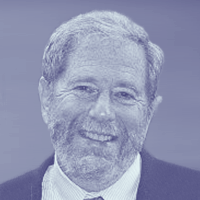Although there is much dispute among constitutional scholars about the meaning and legal effect of the Ninth Amendment, there is consensus about its origin. During the ratification debates over the Constitution, some opponents of ratification (“Anti-Federalists”) vociferously complained about the absence of a bill of rights. In response, supporters of the Constitution (“Federalists”) such as James Wilson argued that a bill of rights would be dangerous. Enumerating any rights, Wilson argued, might imply that all those not listed were surrendered. And, because it was impossible to enumerate all the rights of the people, a bill of rights might actually be construed to justify the government’s power to limit any liberties of the people that were not enumerated. Nevertheless, because the Anti-Federalist demand for a bill of rights resonated with the public, Federalists like James Madison countered with a pledge to offer amendments after the Constitution’s ratification.
As a representative from Virginia to the first Congress, Madison repeatedly insisted, over both indifference and vocal opposition, that the House take up the issue of amendments. In a now famous and much-analyzed speech, he introduced a list of amendments that he proposed be inserted within the text of the Constitution so as literally to “amend” or change it. For example, he proposed that “there be prefixed” to the Constitution a declaration that “Government is instituted and ought to be exercised for the benefit of the people; which consists in the enjoyment of life and liberty, with the right of acquiring and using property, and generally of pursuing and obtaining happiness and safety.”
At the end of the list of rights to be added to Article I, Section 9 (where the individual right of habeas corpus was located) Madison would have placed the language that was the forerunner to the Ninth Amendment:
The exceptions here or elsewhere in the constitution, made in favor of particular rights, shall not be so construed as to diminish the just importance of other rights retained by the people; or as to enlarge the powers delegated by the constitution; but either as actual limitations of such powers, or as inserted merely for greater caution.
By contrast, Madison proposed that the provision that eventually became the Tenth Amendment be inserted after Article VI as a new Article VII.
In his speech, Madison explained his proposed precursor of the Ninth Amendment in terms that connect it directly with Federalist objections to the Bill of Rights:
It has been objected also against a bill of rights, that, by enumerating particular exceptions to the grant of power, it would disparage those rights which were not placed in that enumeration, and it might follow by implication, that those rights which were not singled out, were intended to be assigned into the hands of the general government, and were consequently insecure. This is one of the most plausible arguments I have ever heard urged against the admission of a bill of rights into this system; but, I conceive, that may be guarded against.
All of Madison’s proposals were then referred to a Select Committee of which he was made a member, along with others such as Roger Sherman of Connecticut.
The Committee dropped Madison’s proposed declaration and rewrote his Ninth Amendment proposal to read as it reads today: “The enumeration in the Constitution, of certain rights, shall not be construed to deny or disparage others retained by the people.” At Sherman’s urging, what eventually emerged from the House was a list of amendments to be appended to the end of the Constitution, rather than integrated within the text.
Since its enactment, scholars and judges have argued about both the Ninth Amendment’s meaning and its legal effect, and the courts have rarely relied upon it. During his failed confirmation hearing to become a Supreme Court justice in 1987, Robert Bork analogized the Amendment to an “inkblot,” which hid the constitutional text that was under it. Just as judges should not guess what was under an inkblot, he argued, so too they should not guess at the Ninth Amendment’s meaning. Bork’s very public denial that any meaning of the Amendment could be discovered fueled intense academic interest in the original meaning of the text.
In the literature that developed, much of the controversy concerned the original meaning of the phrase “rights . . . retained by the people.” Since the 1980s, four rival interpretations of this phrase emerged. Russell Caplan claimed that it referred to rights that were granted by state laws, which could be then be preempted by federal laws under the Supremacy Clause. Thomas McAffee contended that the Amendment referred to those “residual” rights that are not surrendered by the enumeration of powers. From this, it followed that, if Congress is exercising its enumerated powers, it cannot be violating a retained right. Akhil Amar argued that its core meaning referred to the “collective” rights of the people, for example, to alter or abolish their government, and that to suppose it protected “counter-majoritarian” individual rights was anachronistic. Finally, Randy Barnett maintained that the Amendment referred to the natural liberty rights of the people as individuals, which are also referred to in the Declaration of Independence, state bills of rights, and Madison’s proposed addition to the Preamble. Natural rights were not conceived as "trumps" that defeat any legal restrictions whatsoever; natural rights were thought of as regulable liberties, the exercise of which may not be prohibited, but may reasonably be regulated for the common good. Only the last of these approaches would have much application to legal cases or controversies.
Others have focused on the meaning of the phrase “shall not be construed to deny or disparage.” For example, while conceding that the rights retained by the people include the “unalienable Rights” to which the Declaration of Independence refers, Justice Antonin Scalia has argued that “the Constitution’s refusal to ‘deny or disparage’ other rights is far removed from affirming any one of them, and even further removed from authorizing judges to identify what they might be, and to enforce the judges’ list against laws duly enacted by the people.” In this way, Justice Scalia would deny the amendment any judicially-enforced legal effect.
In contrast, the “federalism” approach advocated by Kurt Lash and Randy Barnett would give the provision judicial effect by narrowly construing the scope of the enumerated powers of Congress, especially its implied powers under the Necessary and Proper Clause. Barnett also maintains that the Ninth Amendment mandates the “equal protection” of enumerated and unenumerated rights: unenumerated rights should be judicially protected to the same extent that enumerated rights are protected. To implement this requirement, Barnett proposes a rule of construction—the “presumption of liberty”—to protect all the retained rights of the people by placing the onus on legislatures to justify their restrictions on liberty as both necessary and proper, without judges needing to specifically identify the retained individual rights.
Finally, Louis Michael Seidman argues that, while it defeats the inference that the enumeration of some rights denies the existence of others, the Amendment does not itself establish the existence of these other rights. Just as opponents of unenumerated rights cannot rely on the enumeration of some rights to defeat the claim that there are other rights, proponents of unenumerated rights cannot rely on the text of the Ninth Amendment to prove that the rights exist or to establish what the rights are. Instead, in his view, the Ninth Amendment leaves the argument about unenumerated rights unresolved.






